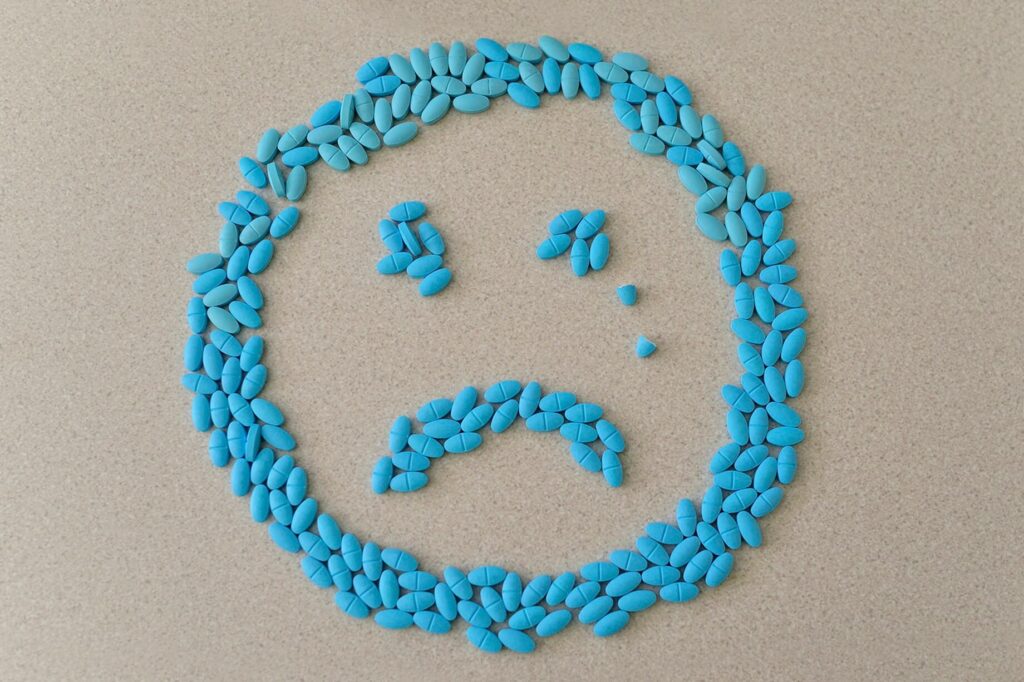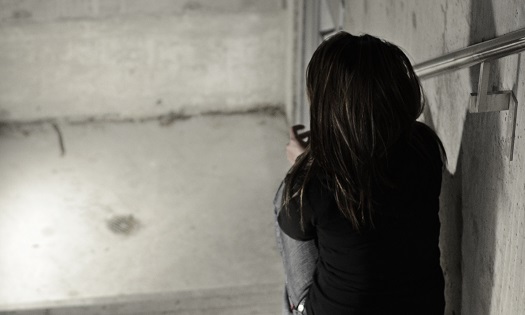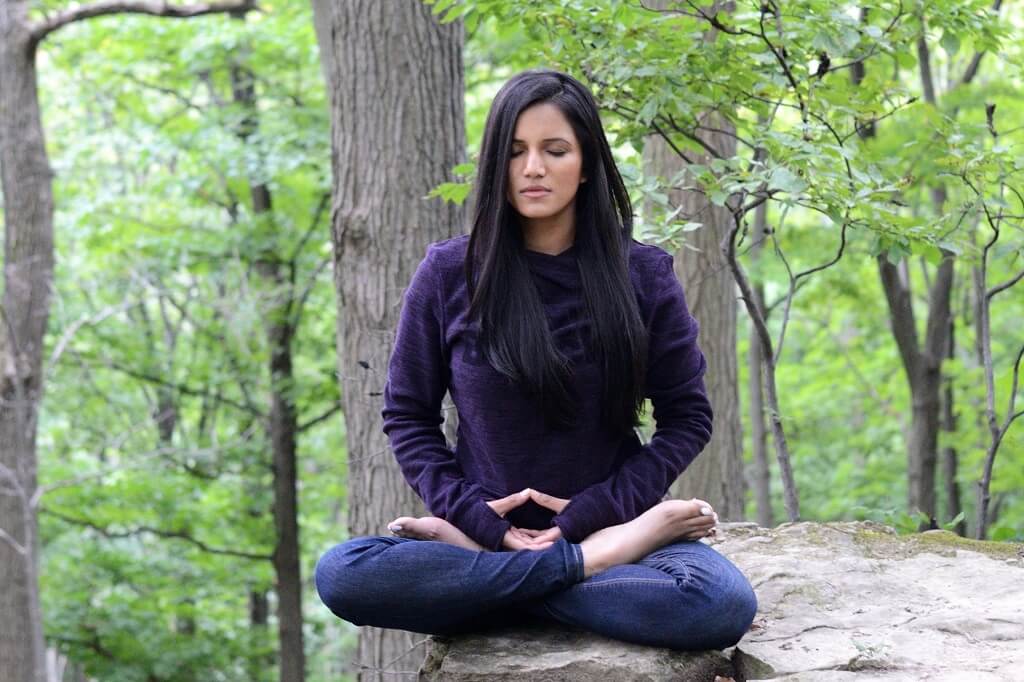How to Fall Asleep and Manage Sleep Deprivation
Lying awake in bed at 4:00 AM is painful because you know getting up in the morning will feel like you got hit by a truck. Not getting enough rest can have a negative impact on your mental health. Sleep deprivation can lead to irritability, depression, anxiety, and impairment in cognitive function.
So, I want to share 10 tips to help you fall asleep, and shed light on how you can find rest and peace despite sleep deprivation.

Meeting one of the Top Sleep Specialists in the Country and Learning Tips to Fall Asleep
There was a time I felt like giving up on life because I didn’t know how to deal with my sleep deprivation. In the past, I tried everything to sleep better, including hypnosis, sleep medications (Zopiclone, Seroquel, Clonazepam, etc.), medical marijuana, and more.
Over the years, however, I have learned to utilize some simple tips to fall asleep that everyone can use.
In 2015, after 15 years of struggling, I was eventually referred to one of the top sleep specialists in the country. I was getting an average of 0-3 hours of sleep per day and my sleep patterns were irregular.
So, after various tests, the doctor diagnosed me with a rare circadian rhythm sleep disorder called non-24-hour sleep/wake disorder.
His advice was to take melatonin and focus on sleep hygiene since there is no cure for something so rare. Now, I have committed to doing everything I can to sleep better and I am able to get 6-9 hours of sleep on a good night.
So, I want to share 10 tips with you to fall asleep and a powerful way to manage sleep deprivation.
Top 10 Tips to Fall Asleep
Tip 1: Understand the “insomnia cycle”
Don’t get upset when you can’t sleep because this makes you more awake, which makes you more upset, which makes you more awake.
In fact, of all the tips to fall asleep, this is by far the most important and most difficult. Rather than getting frustrated, accept that it’s going to be one of those nights, and tomorrow will just be one of those mornings.
- Recognize that getting upset is pointless and prevents you from relaxing. Instead, accept it and make peace with it.
Tip 2: Your nightmares are there for a reason
Having bad dreams is a sign that you’re stressed, worried, or feeling overwhelmed. So, don’t avoid any pain that you are feeling because it will come to you when you are most vulnerable.
In other words, your psyche will use the time you are asleep to project your anxieties if you’re not dealing with them during the day.
- Take the time to face your pain during the day so you can let go and rest properly at night.

Photo by: Jonathan Lai
Tip 3: Avoid alcohol and caffeine
Some believe alcohol helps you sleep; however, this is only partially true. Alcohol may make you drowsy, but this is followed by a “wake-up” effect. Meaning, alcohol wakes you up within a couple of hours of helping you fall asleep.
- After all, hangovers and jetlag pretty much feel the same. Overall, this method is a fruitless endeavor.
We’ve all heard this, but seriously, don’t drink or eat anything with caffeine after 4 PM because it impacts your ability to fall asleep and stay asleep. If you are extra sensitive don’t consume caffeine after 12 PM.
- In other words, don’t drink caffeine at least 8-12 hours before bedtime.
Tip 4: Avoid self-medicating, instead, focus on quality, not quantity
There are different phases in your sleep cycle and the deeper stages are what make you feel rested. Self-medicating is tempting, trust me I’ve done it, but it affects your long-term chances of healing and achieving deep, restful sleep.
Truly, it isn’t about the length but rather the quality of your sleep.
- Think about this, would you rather sleep for 5 hours and wake up feeling rested and alert? Or, sleep for 8 hours and wake up feeling tired and groggy?
Tip 5: Understand light and dark cues and eliminate light at night
Your circadian rhythm is your internal body clock and it responds to light and dark cues. Consequently, when it is dark, your body secretes melatonin, a hormone that regulates your sleep-wake cycle.
On the other hand, during the day, it is easier for most people to stay awake because the sun is out and shining versus when it’s rainy, cloudy, or the sun has set.
- One’s body biologically responds to the influence of light and darkness.
For this reason, artificial light from phones, computer screens, and bulbs can disrupt the natural processes that regulate sleep. Therefore, approximately 1-2 hours before bed, it’s best to take off all bright lights. Instead, use candles, salt lamps, or nightlights.
- Avoid light before bed, a good baseline for too much light is whether you can see color.
Tip 6: keep a consistent routine and refrain from napping
Try to wake up and go to bed at the same time every night as this will help you train your body. Sleep in only if it is necessary, otherwise, you make it difficult for your body to keep up with the constant changes in your sleep/wake cycle.
- There are times when sleeping in makes us feel groggy. Thus, if it isn’t restful, there’s no point in doing it.
While napping feels great and is hard to resist, especially when you’re sleep-deprived, staying awake until bedtime can pay off. This was especially difficult for me in the beginning because some nights I did not sleep at all. I have learned now that napping is just another hindrance to maintaining a quality sleep schedule.
- If you do need to nap, try not to enter deep sleep by setting an alarm to wake you up within 20 minutes. Otherwise, it can throw off your sleep pattern.
Download my FREE printable Sleep Diary to start tracking your sleep patterns.
Tip 7: Make your room a sleep haven
Ideally, when you walk into your bedroom, you should feel relaxed right away. So, the next time you walk into your room, be aware of how it makes you feel. Does it make you feel calm and want to climb into your bed?
To make your room a sleep haven, improve the vibe so you can train yourself to associate your bedroom with sleep by:
- Removing clutter and keeping things tidy
- Making your bed every morning (a made bed is so much more inviting)
- Removing distractions (ie. light sources)
- Keep it cool (it is better to sleep in lower temperatures)
- Avoid using your bedroom for activities other than sleep
If possible, invest some money in the following:
- Plants (avoid ones with thorns since they are less inviting)
- Blackout drapes
- Sound machine for white noise (or a fan)
- Humidifier (excellent for sleep, dry skin and hair)
- Comfortable mattress, pillows, blankets/duvets
- Choose calming colors for your room such as: blue, white, purple, light grey and avoid colors like bright red, orange, and yellow

Tip 8: Relearn how to fall asleep
After long periods of sleep deprivation, habits form making it difficult to remember how to fall asleep. As a result, for the next few nights when you lay in bed, try to recall the earliest memory you have of falling asleep. You may recall something from when you were as young as 6-years-old. Subsequently, you will likely find three things were prominent during these times:
- The ability to leave behind the day and its worries
- A lack of concern for whether you will fall asleep or not
- A natural surrender to your body and the rhythm of your breathing
- So, remember:
– Everything you want to think about can wait until the morning when you are rested.
– Don’t be concerned about your sleep because thinking about it keeps you awake.
– Consciously relax your body for a few minutes, then shift your attention to the turning points of your breathing. Notice when your breath turns from an inhale to an exhale and surrender to this rhythm.
Tip 9: Wind down early and don’t miss your sleep window
Listen to your body. Sure, you want to write that last email/blog post or finish your show, but is staying up an extra 20 minutes worth a full day of exhaustion? Furthermore, before bed, do not work out or clean since this will leave you feeling wired.
- Start winding down at least 1-2 hours before bed and give your brain the time it needs to shut out all your daily activities.
Tip 10: Meditation is the ultimate sleep hack
Although this article is about tips for falling asleep, the real goal is to feel rested. Meditation is just as restful as sleep and will help you feel more alert.
In fact, my regular sleep requirement is usually 7-9 hours for me to wake up feeling refreshed and energized, which decreases to 3-5 hours a night when I meditate. For this reason, on nights I can’t fall asleep, I still allow my mind and body to rest through silence and stillness.
- The New Year is the perfect time to start a meditation practice and commit to improving your mental health. Take a look at this article if you want to learn how to meditate, there is also a guided meditation included.
Do you have any additional tips to fall asleep? Comment below.

1 Powerful Way to Deal with Sleep Deprivation
Make Peace with Your Experience
The above tips make it easier to fall asleep but sometimes you’re just going to experience sleepless nights that are out of your control.
Remember tip #1: The insomnia cycle. I know it isn’t easy to accept something that causes you suffering.
On the other hand, resisting something that you cannot change only leads to further frustration, unhappiness, and dissatisfaction.
Too many of us focus on changing our external circumstances, rather than facing what is happening within us. In fact, the true pain of sleep deprivation is the emotional and mental toll, not the physical lack of sleep.
As a result, dreading and hating your experience worsens your emotional and mental state by making sleep deprivation a part of your identity.
You are not your sleep issues; it is something you experience. Sleepiness and tiredness arise and pass, let them come and let them go.
For this reason, being at peace regardless of how you sleep will help you feel rested, happier, and more at ease with the things you cannot change.
These are all things I live by that have helped me cope with my sleep disorder and everything that comes with it. So, I hope these tips will improve your sleep and help you to deal with any sleep deprivation you face too.
May you be happy and well,
With love,

Download my FREE printable Sleep Diary to start tracking your sleep patterns.
Join my email list to receive updates about meditation, mindfulness, mental health, and spiritual healing.


You know what. I was going to do some work tonight but you’re right. Getting my mind and body for rest 1-2 hrs before should be prioritized. I haven’t been doing that and haven’t gotten good sleep lately. I’ve been quite exhausted lately. Thanks for these tips an reminders 🙏🏽.
Awww! I hope your sleep improves and you get some rest. It’s not always easy to wind down early but its definitely helpful whenever possible. Really happy it resonated with you 🙏🏽 Thank you for your comment, Jen ❤️
Such great tips!! I have cut back on wine at night time, because of that exact reason. It was keeping me up. Thanks for sharing these!
Thank you so much, Kim 😊 Happy to hear you found value in these tips 🙏❤️